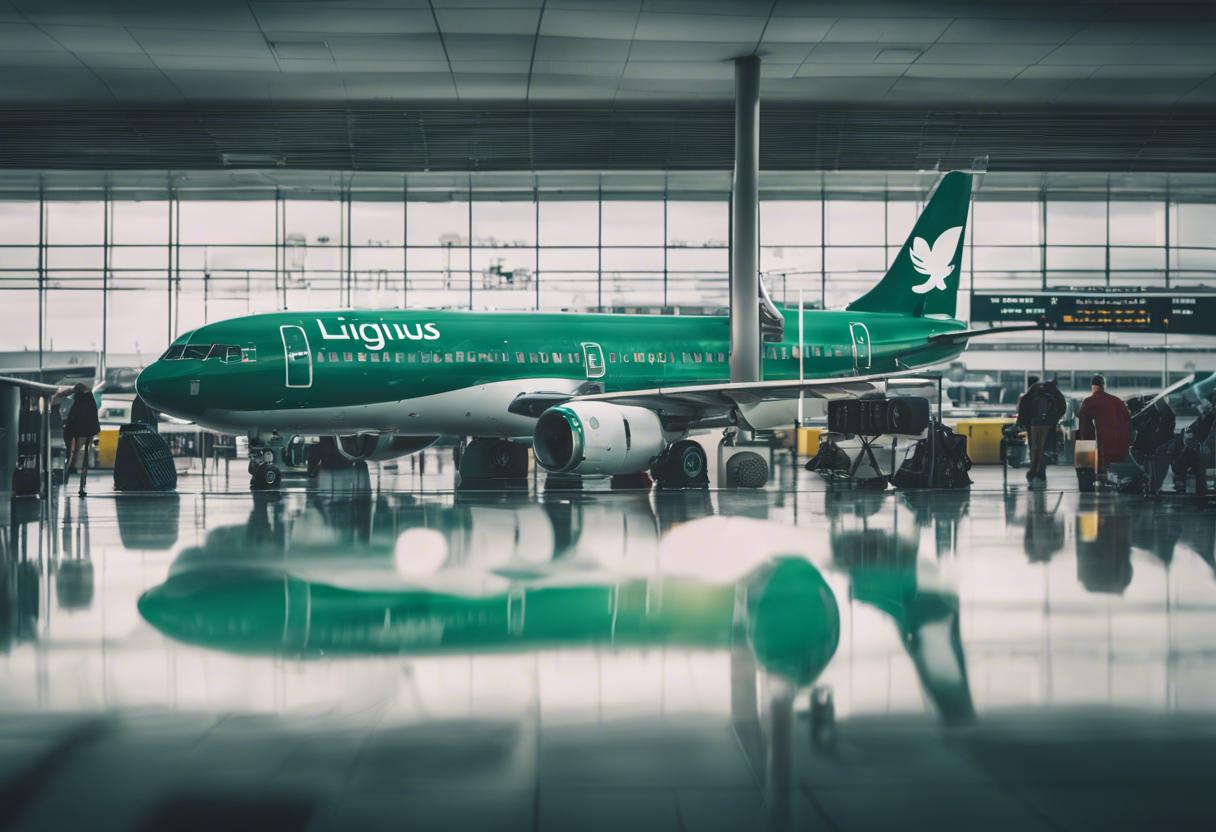The tourism sector leaders, numbering at 400, gathered last month to explore the concept of “responsible ambition” amidst our current climate crisis during the ITIC conference, held in Ireland. While there was a strong showcase of ambition, the evidence of dutiful climate stewardship was less apparent.
The conference was efficiently managed and boasted high-ranking speakers like John Concannon, the newly appointed ambassador to Canada, with Dearbhail McDonald steering the conversations as the moderator. A striking feature of the event, bordering on the satirical, was an interview featuring Donal Moriarty of Aer Lingus and Kenny Jacobs from Dublin Airport Authority.
The two aviation bigwigs committed to persevering on their goal to raise the current passenger cap. The driving force behind this? The hindrance faced in increasing passenger numbers at Dublin Airport by parties reluctant to progress. This crucial aviation hotspot caters to a mere 32 million passengers annually, however, the recent cap set by the Irish Aviation Authority limits the number to 25.2 million in the upcoming summer. The duo at Dublin Airport Authority, however, aspire to stretch this limit to 40 million passengers each year.
To put things in perspective, 40 million people are more than seven times the population of Ireland. This number would equate to a considerably large distribution of boarding passes, a challenge even for seasoned professionals like Moriarty and Jacobs. However, it’s clear it would also lead to a significant increase in carbon emissions. In the face of our current climate crisis, which the Potsdam Institute distressingly terms as on the brink of a “red alert,” it’s commonly known that emissions from the transport sector are rapidly increasing.
Kenny Jacobs, speaking at the ITIC conference, has a deep understanding of the climate change crisis. As a parent, he has major concerns for our future, voiced not only by his own children but also widespread within society. Previously from Ryanair, he now oversees our principal airport.
Jacobs, along with Moriarty, didn’t repeat the constant warnings given by climate scientists. Instead, they hinted at an optimistic future. As Jacobs suggested, advancements in technology will eventually rise to the challenge. This could potentially involve more fuel-efficient planes, or even the introduction of so-called sustainable aviation fuel. By the year 2050, which is just 26 years away, this revolutionary fuel could drastically reduce carbon emissions. According to predictions by the International Air Transport Association, Sustainable Aviation Fuel could account for approximately 65% of the reductions needed by the aviation industry to achieve net zero CO2 emissions by 2050.
This sounds promising if not examined closely. However, scientists counter this optimism with their rigorous studies. They highlight that Sustainable Aviation Fuel still has a significant carbon footprint and costs more than the currently untaxed fossil jet fuel. Their assertion is that the European Union needs to up its game in terms of its efforts to reduce carbon emissions in aviation. They emphasise, echoing the recent statement by Mary Robinson, that we may have as little as six years to act before we reach an environmental tipping point.
However, the doomsday predictions fall flat when contrasted with the potential and vitality of Irish tourism. And let’s not forget, as Jacobs confidently asserts – technology will eventually fall in line. In the interim, the argument goes that increasing flights will allow Aer Lingus to make the necessary profits to invest in these new technologies. Moriarty believes that capping the passenger limit at 32 million is environmentally harmful. Although this argument raises eyebrows, Jacobs supports it, though acknowledging it might sound paradoxical to some. I happen to agree with the sceptics.
The “Don and Ken Show” elicited thoughts of an old jest about a man aiming to slim down. “I follow a see-food diet,” he would brag. “The more food that meets my eyes, the more I consume.” This is essentially what the pair were suggesting: increasing pollution in order to rectify the pollution issue. It’s amusing, isn’t it?
However, there was no laughter echoing. There were no hecklers. Instead, a warm wave of applause was presented by the 400 leading figures of the tourism sector. Oliver Callan then took the stage, appearing somewhat taken aback, as if he had been overshadowed by two jesters. To be fair, despite their rhetoric, Callan managed to impart the message that “those two” were implying that everything was going to be alright. Perhaps we should all just continue travelling by air! And then it was time to introduce some more humour.
Eventually, we will have a sober discussion about responsible ambition, as well as the imperative reduction of air travel. This is the only feasible method to substantially reduce the climate impact of aviation in the near future. This is a conversation with utmost importance because our homeland is an island; tourism being the driving force of our indigenous industry; and climate change posing a severe, immediate peril to our race’s future. Until such time, we will continue listening to more fanciful solutions from characters like Don and Ken.
Outside the conference, they were met by a tiny assembly of elderly individuals with handcrafted signs. One read: “Prioritise children’s rights, not additional flights.” Seeing those demonstrators, I felt a sense of pride in being Irish, but simultaneously embarrassed to belong to an industry that fails to comprehend the value of responsible ambition.
Trevor White, a writer and the initiator of the Little Museum of Dublin, penned “A Little History of Dublin”, which is available through Merrion Press.

